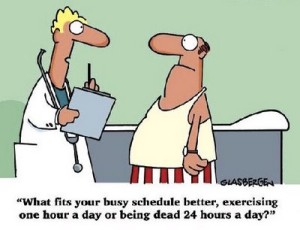Feb 17 2011
GOT BILK? HAHAHAHAHAHAHAHAHAHA!
And in the sweetness of
friendship let there be
laughter, and sharing
of pleasures. For in the
dew of little things the
heart finds its morning
and is refreshed.”
--Kahlil Gibran
“A sense of humor can be priceless in frustrating situations. Having a sense of humor does not mean laughing and joking all the time. But many of life’s problems and predicaments are the result of weaknesses and mistakes.
“If you can recognize these first and release some of your tensions by seeing the humor in a situation, you will be in better condition to begin the serious business of making adjustments.”
--Rita K. Baltus, PERSONAL PSYCHOLOGY FOR LIFE AND WORK
It’s probably true that the boardroom meeting gone sour at hearing the latest plunge-in-sales report, may not be the best venue for reenacting a joyful rendition of “Singing in the Rain” with a tabletop tap-dance.
One might also be well-advised to avoid raising outstretched hands to the roomful of grey-pinstriped-suit-clad directors and addressing them in mock whisper:
Did you hear the one about this guy goes into a bar with a purple parrot hanging off his belt . . .?”
But well-timed doses of tasteful humor do have a place in business. Humor almost always plays an important role in establishing, re-establishing and maintaining balance and harmony in business ownership and business management settings. For leaders, small periodic shots of self-effacing humor lets team members know they’re being led by authenticity.
It’s definitely true that getting a serious-minded sales prospect or existing or past customer to crack a smile or chuckle serves to lighten the burdensome parts of the sales message and generally makes that individual or group more receptive to exploring available products or services in a positive frame of mind.
She/he/they will also be more likely to engage with the emotional buying motive triggers that account for every sale of every product, every service and every idea . . . even those that seem like they are prompted by rational and logical-based decisions.
Tasteful, well-placed humor is typically exercised most successfully by entrepreneurial thinkers and doers who are self-confident , self-reliant, and proactive thinking. Humor bullets are most often fired by those who are “sales personalities,” who are outgoing people who are invested in building and strengthening relationships.
But plenty of business humor has found its way to the top of agendas hosted by serious introverted business leaders as well, including Henry Ford, Albert Einstein, Bill Gates, and Thomas Edison, to name just a few. So it’s not a question of that you either have it or you don’t. It’s instead a question of timing, presentation, and appropriateness. And all three are within your reach.
You think you don’t have it in you to make humor part of your repertoire? Then work at it. You really can improve, you know. Aldous Leonard Huxley (You remember him, right? He sat behind you in third grade . . . or was it fifth?) once said:
There’s only one corner of the universe that you can be certain of improving and that’s your own self.”
# # #
hal@businessworks.US
STRATEGY/ CONTENT/ CONNECTION
931.854.0474 Coaching for Higher Branding Impact
Business Development/ National-Awards/ Record Client Sales
Personal & Professional Growth/ Creative Entrepreneurial Thinking



